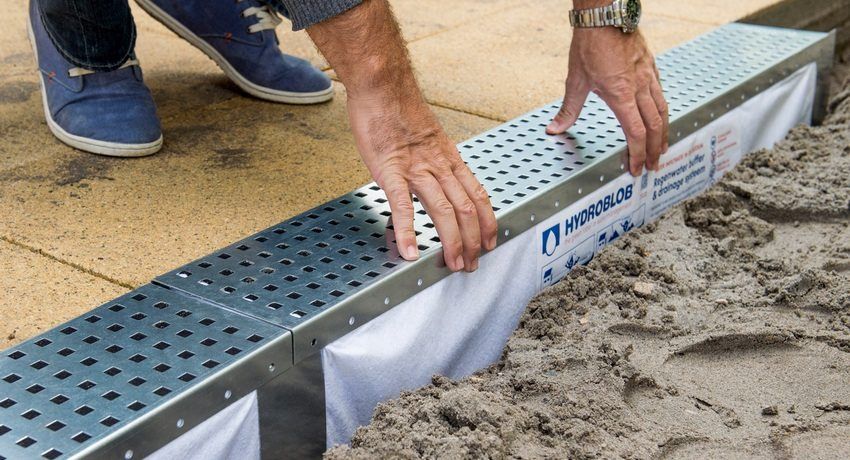When planning your own houses, high-rise buildings, various buildings and institutions, as well as industrial buildings, a lot of attention is paid to ventilation. One of the highlights when installing ventilation systems will be the correct choice of pipes for ventilation. It should take into account its size, the material from which it is made, especially the operation.
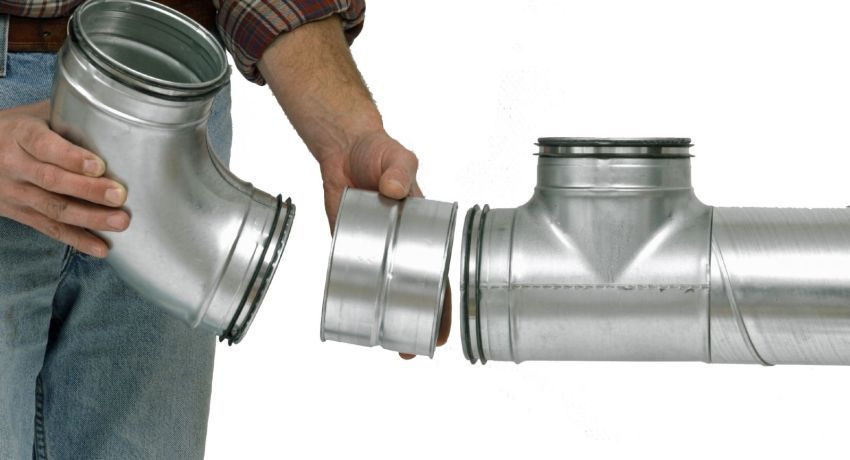
Certain parameters of quality ducts
For the device of natural and mechanical ventilation necessary high-quality air ducts. They must meet certain requirements. Such parameters include: tightness, the ability to hold air pressure, calculated by the project, the ability to ensure the free passage of air masses through them, the ability to maintain the necessary thermal insulation.
Air ducts for ventilation. Installation, operation and maintenance of systems. Materials for the manufacture. Types of sections of air ducts, methods of connection. Cleaning and disinfecting duct systems.
Two main characteristics underlie the classification of pipes: the shape of the section and the material from which they can be made. Air ducts of rectangular or circular cross section are installed in any high-rise or private house. Exhaust and inlet ventilation are provided by pipes, the diameter of which can be in a fairly wide range. For round – from 100 to 2000 mm, for rectangular – from 100×150 mm to 1600×2000 mm. The shape of the cross section is selected according to several important parameters, which are required to be suitable in size and purpose of the room. The main materials from which pipes for ventilation are made are metal and plastic. Mark any of them as the best – you can not. That is why the market in a sufficient range of both types are presented.
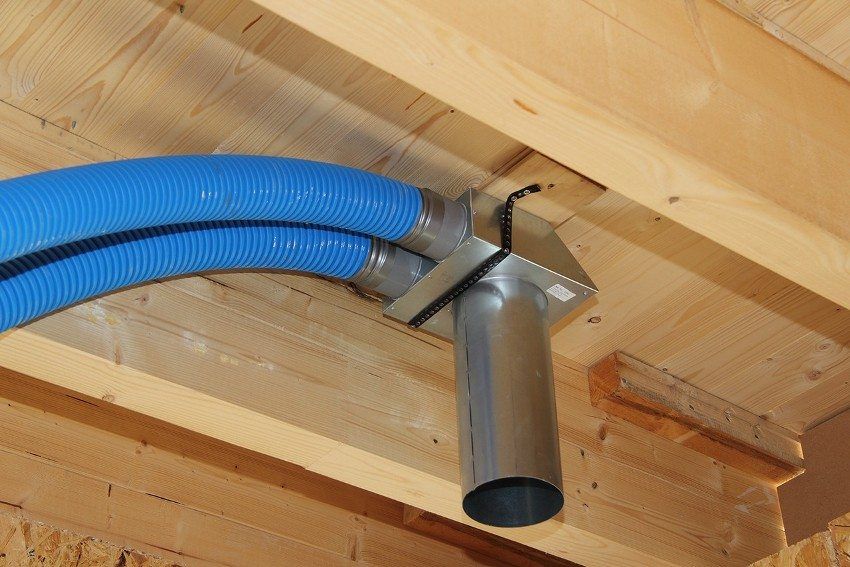
Metal pipes can be made of the following metals: galvanized black, black sheet steel, stainless steel and galvanized steel, aluminum. Indisputable advantages of their operation are:
- long service life, durability;
- smooth surface provides good aerodynamics;
- on the surface there is no accumulation of dirt, dust, soot;
- can withstand high temperatures and pressures;
- resistant to aggressive effects.
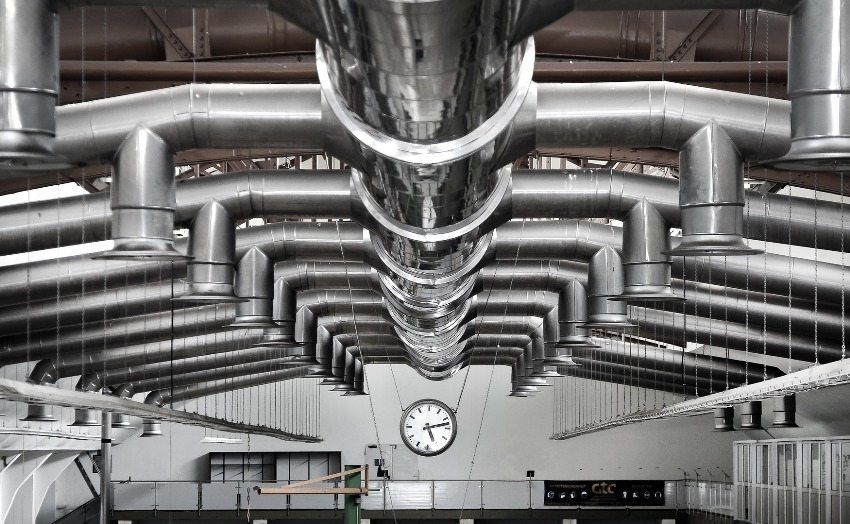
Exhaust ventilation in a private house should be designed properly. The choice of material for the ventilation pipe is always a responsible and controversial issue. Often consumers tend to choose such a pipe as galvanized.
Important! The galvanized pipe, having a small mass, retains all the important temperature characteristics inherent in all metallic types.
Plus, it is inexpensive and easy to assemble. Installation of the system is not difficult to do it yourself. A zinc layer saves such a pipe from corrosion, and it doesn’t need additional painting during operation.
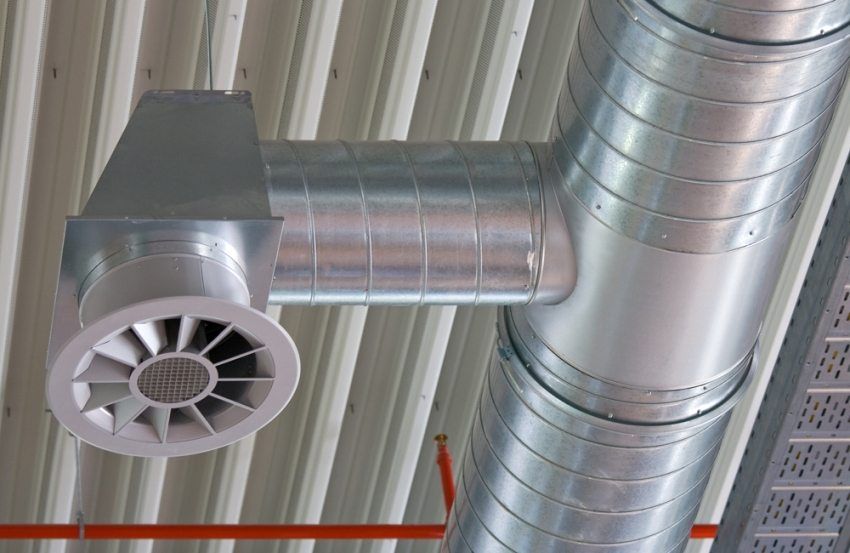
Air ducts from a stainless steel and black steel in most cases are established on productions. They are distinguished by their ability to withstand high temperatures, increased refractoriness. The stainless steel is also suitable for transporting aggressive air masses through it.
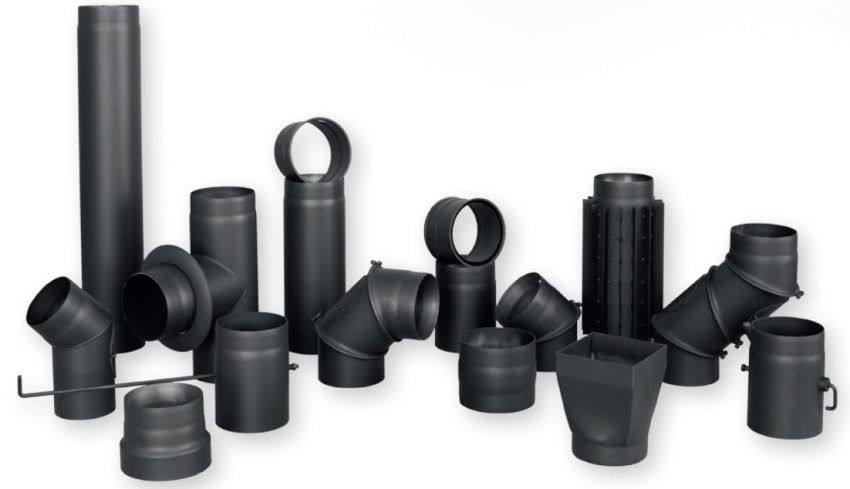
Many experts unanimously believe that the exhaust pipes for ventilation in a private house with self-assembly should be plastic. There are several types of polymers for the manufacture of pipes of this type. PVC or polyvinyl chloride pipes for ventilation are particularly popular. They have a lot of advantageous advantages over others, which explains the great demand for them:
- pricing: cheaper than metal;
- ease of installation: do not require the use of special fastening devices, are mounted most often with the help of certain devices of their own design;
- PVC pipes have a wide range of sizes, which will allow to assemble a structure of any complexity from its components;
- well pass the air moving on them as they have a smooth internal surface;
- noise insulation;
- have a pleasant appearance and can be used after finishing the premises;
- small weight, which makes it possible not to firmly fasten the entire system;
- long service life.
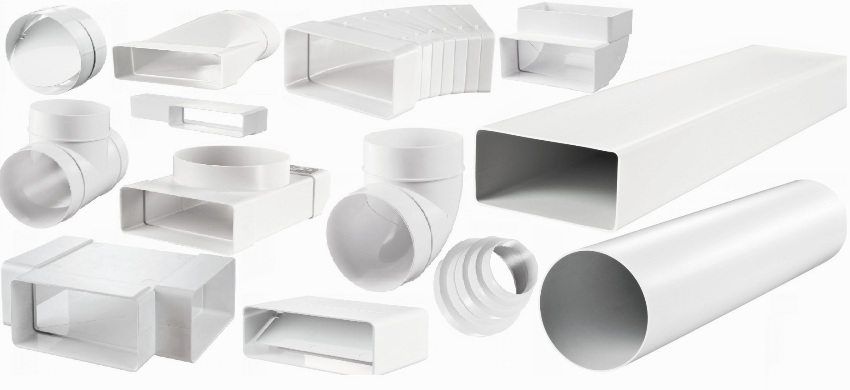
It is very important to choose the right option, especially if you are supposed to do everything yourself, without the help of a qualified master. PVC pipe ventilation is equipped with many buildings, but in most cases these are private houses.
According to their technical qualities, sewer and ventilation PVC pipes are very similar. Most often, consumers are concerned about the question: is it possible to arrange a ventilation system from sewage pipes with their own hands, while obtaining the necessary result? No one can give a definite answer to him. You can only briefly consider it, and the decision will remain for the owners.
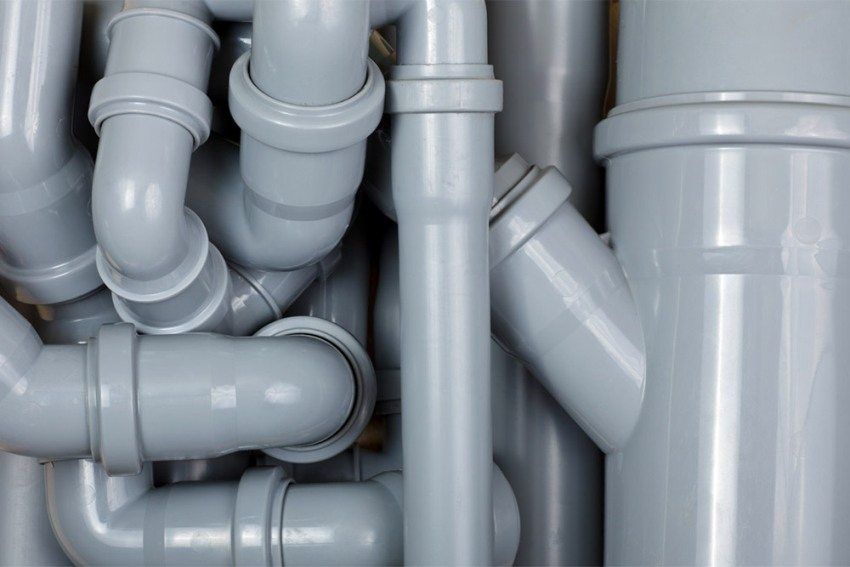
The biggest difficulty with this process will cause a mismatch in the dimensions of the component parts. The diameter of the pipes of one and another type does not coincide in its range. If the ventilation system, for example, natural, will be mounted from scratch, then such a device is quite possible. But if a consumer wants to supplement an already existing system with sewage pipes in his private house, then he is unlikely to succeed. The mismatch of the sizes of the pipes themselves, the connecting elements will not give an opportunity to carry out the plan.
Many are of the opinion that sewage pipes are made of plastic, which emits harmful fumes. Putting them not on the supply system, but on the exhaust, you can solve this issue. In this case, all harmful evaporation will be drawn out of the room. Many do not fit the aesthetic appearance. PVC ventilation pipes are more attractive and are suitable for any interior.
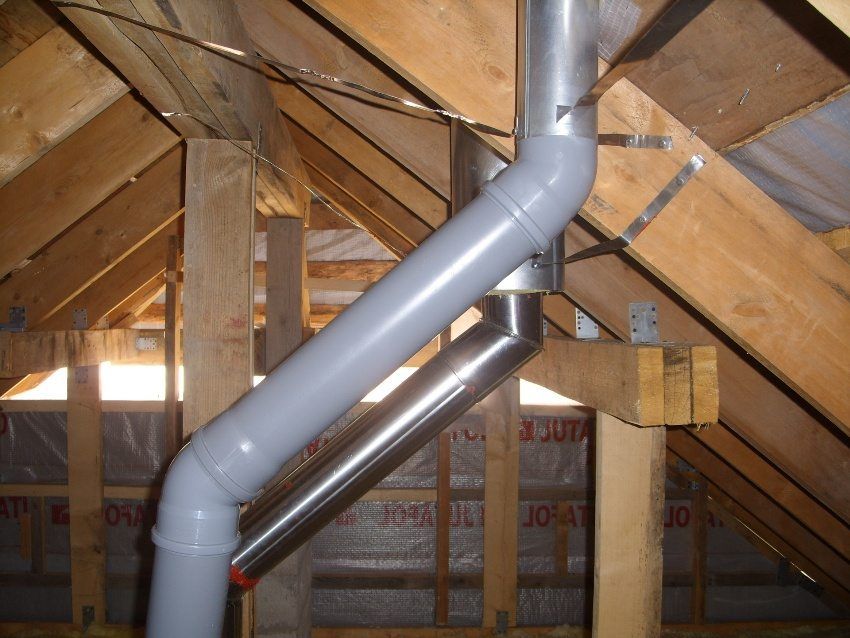
Decisions about the device of ventilation in a private house from the sewer pipes are made by the owners themselves, according to their skills and capabilities.
A sandwich pipe for ventilation has a device and characteristics that provide a high level of thermal insulation and fire resistance. They are an integral part of such heating devices as stoves, heating boilers, fireplaces in a private house. In the name itself, the basic idea of their design is already defined: two pipes of different diameters are one in one, and the space between them is filled with a basalt seal. Insulated sandwich chimneys have high thermal insulation values. Exhaust air with combustion products does not have the ability to cool down and, according to all the laws of physics, rises quickly and is evacuated from the room.
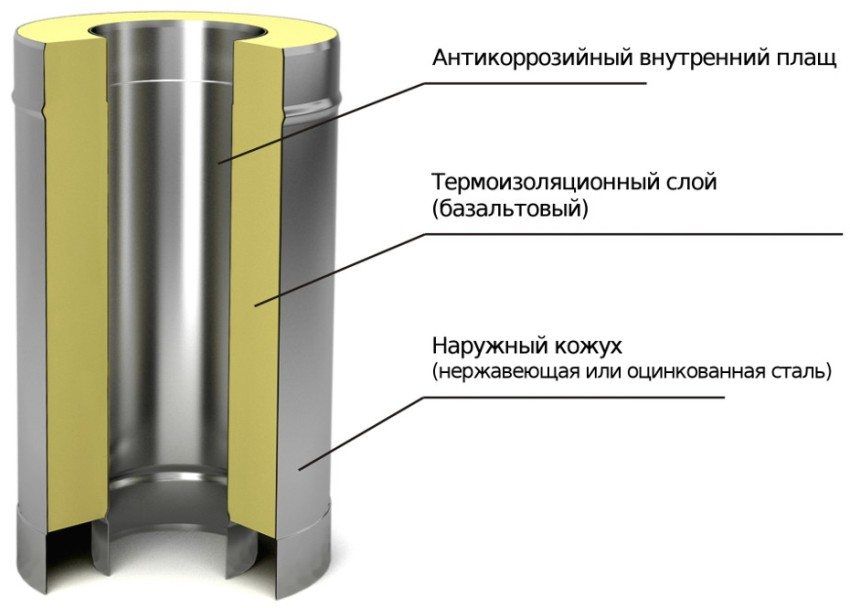
The place of their use determines the source material for manufacturing. If solid fuel is used for heating, then only a stainless steel pipe sandwich with a high coefficient of heat resistance is suitable. If gas is used for heating, it is enough to install chimneys made of ordinary steel.
The diameter of the pipe sandwich can be of different sizes. This allows you to easily choose a chimney to any heating appliance. When marking using spelling numbers through a fraction. For example, 120/150. The first is the diameter of the inner working tube, and the second is the outer diameter.
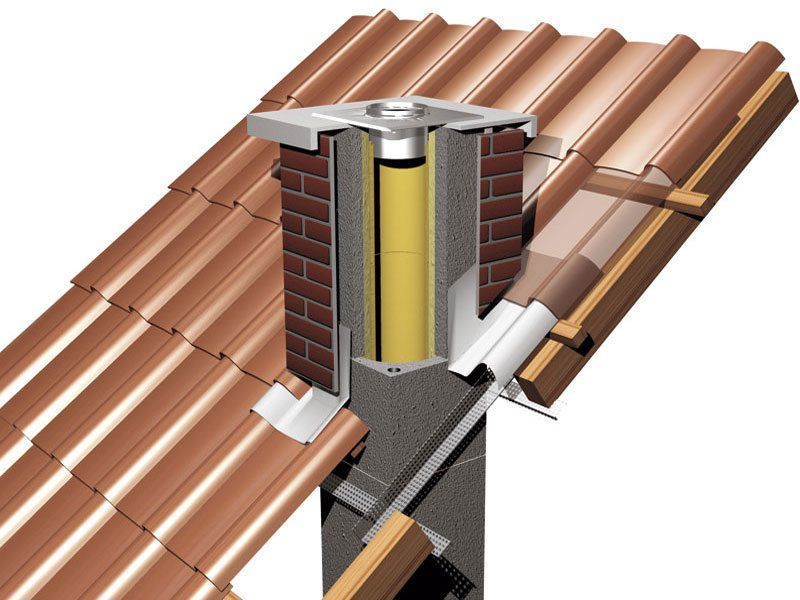
Important! In order to calculate the diameter of the pipe for ventilation, it is necessary to know the power of the heating equipment and the size of the cross section of its outlet opening.
Pipes of this design belong to the class of flexible ducts. They have a large list of advantages:
- high elasticity and flexibility;
- make the whole ventilation system as a whole flexible, which is very important when solving some complex issues during installation and reconstruction;
- strong;
- easy to use, easy to do it yourself;
- do not require special devices (adapters, tees).
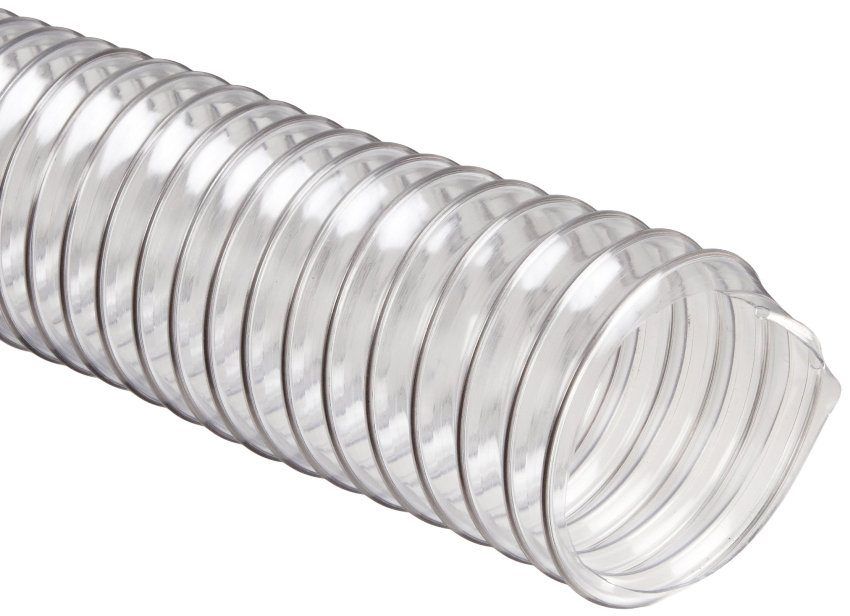
Any corrugated pipe, regardless of the complexity of the configuration of the premises in the house and what its diameter, is easily bent at any angle.
The flexible pipe can be galvanized, PVC and aluminum. Each type has the advantages of the material from which it is made, and the advantages of directly flexible ducts. It is widely used in factories and in a private house, it is easy to assemble with your own hands.
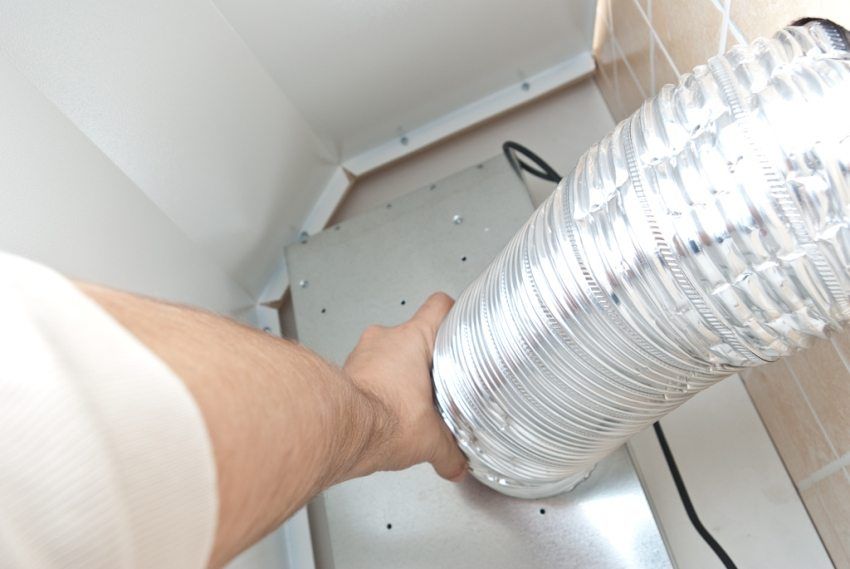
From the proper selection of the parameters of the ventilation system depends on all its further performance. The main parameters are sizes. It is possible to calculate the diameter of the ventilation pipes after the entire system has already been designed and the choice of duct material is made. It has a different bandwidth, which affects the size indicators.
When making calculations, it is important to consider where the pipe is located in a private house: residential or utility room. Since they have different indicators of the frequency of air exchange. We take this indicator from regulatory documents (L). For the natural type of the ventilation system, the air velocity going through its channels is 0.5-1 m / s, and for forced air – 5-7 m / s (V). Then it will not be difficult to calculate the cross-sectional area of the channel using the formula:
S = L / 3600V,
with the help of which the diameter is easily determined.
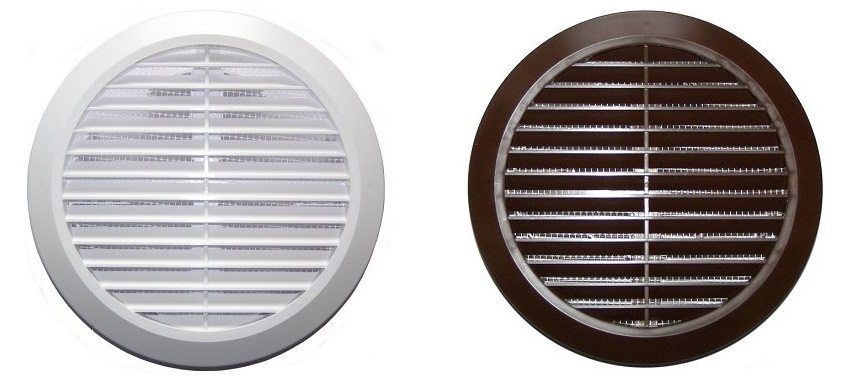
The second important point in the operation of the ventilation channels will be insulation. Pipe for ventilation – metal and plastic – must be insulated. This is an urgent question in the attics in the house. Galvanized, PVC and any other pipe in the cold are covered with condensate. This is due to the fact that the temperature inside and outside the ventilation channel is very different.
Important! Warming pipes for ventilation is certainly necessary, constantly accumulating condensate leads to various types of destruction.
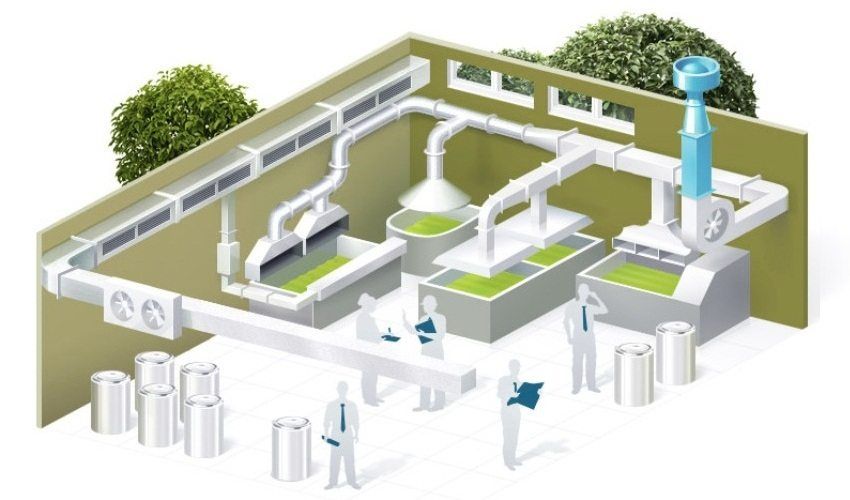
Warming can be done using such materials: foamed rubber, basalt fiber, polyurethane foam, polypropylene, mineral wool. Sandwich-type channels have a layer of basalt fiber inside, and do not need additional insulation. Insulated pipes for ventilation will last much longer. The term of their operation directly depends on the timely and high-quality implementation of this procedure.
